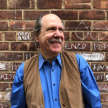Review of 'Who Killed JFK?' Episodes 7-8
The Assembled Killers, Not Including Lee Harvey Oswald

Given the depth of the pain I and everyone I know felt about the assassination of JFK in November 1963, it's hard to fathom how many different people fervently wanted it. The seventh episode of the Who Killed JFK podcast with Rob Reiner and Soledad O'Brien makes the case for three groups, in particular: the CIA, Cuban exiles, and the Mafia.
The animus that the CIA and exiles from Castro's Cuba had for JFK has already been convincingly presented in prior episodes of this pathbreaking podcast. In episode 7, the focus is on the Mafia, which had two reasons to hate JFK. First, Castro's takeover of Cuba resulted in the Mob's Caribbean Las Vegas being extinguished, which cost them untold millions of dollars. JFK's move towards peace and defacto acceptance of Castro in Cuba after the Cuban Missile Crisis thus angered the Mob almost as much as it did the Cuban exiles and the bellicose CIA. Second, Robert F. Kennedy, appointed Attorney General by his brother, pursued an escalating attack on the Mafia, giving it a reason all its own to want JFK removed from office.
As this episode amply details, members of all three groups -- the CIA, Cuban exiles, and the Mafia -- were in Dallas the day that JFK was assassinated. Are we to believe that that was just coincidence? Not likely. And one CIA operative in particular is especially notable: E. H. Hunt, who achieved infamy a decade later as one of the architects of the Watergate break-in that brought down Nixon.
As Reiner aptly has put it more than once, lots of chess pieces were being moved around in the months preceding JFK's assassination. All of which to insure that JFK was killed, and the blame placed with none of the three groups that were responsible.
The proposition that Lee Harvey Oswald was indeed the patsy that he proclaimed himself to be right after the assassination rings ever more true.
***
The short but powerfully informative Episode 8 of the Who Killed JFK? podcast makes the case that Lee Harvey Oswald, based on eye-witness accounts of his movements in Dallas on November 22, 1963, couldn't possibly have done it.
Here are the highlights:
1. The package that Oswald carried into the Texas Book Depository on the day of the assassination was too small to fit the rifle that killed JFK, even if disassembled, according to a witness (interviewed by Reiner in 2023) who traveled with Oswald to work that day.
2. More than one witness places Oswald in the cafeteria of the Texas Book Depository at 12:25pm, a time too close to get back up to the 6th floor, from where at least some of the three bullets were fired at JFK at 12:30pm.
3. Oswald's behavior after the assassination makes no sense from someone trying to get away.
Now these details, added to what we heard in Episode 7 and earlier podcast episodes about why some highly placed people at the CIA, the Mafia, and Cuban exiles wanted to see JFK dead, plus the forensic evidence of at least one of three bullets coming from in front of the JFK Limo, i.e., not from the Texas Book Depository, where Oswald was, make a case that, if I were on a jury trying Oswald for this crime, I would have more than enough evidence or lack of evidence to find him not guilty.
But, of course, as we know, Oswald never got to trial, because Jack Ruby killed him. So Oswald turned out not just to be just a patsy -- a troubled but innocent man blamed from the assassination of John F. Kennedy -- but a patsy who paid for that role with his life. Next week, we'll learn more about Jack Ruby's role in all of this.
And as I said before, I hope, by the end of these riveting podcast episodes, that we learn why the President's brother, Robert F. Kennedy, put up with all of this, only to be assassinated himself.
About the Creator
Paul Levinson
Novels The Silk Code, The Plot To Save Socrates, It's Real Life: An Alternate History of The Beatles; LPs Twice Upon A Rhyme & Welcome Up; nonfiction The Soft Edge & Digital McLuhan, translated into 15 languages. Prof, Fordham Univ.
Enjoyed the story? Support the Creator.
Subscribe for free to receive all their stories in your feed. You could also pledge your support or give them a one-off tip, letting them know you appreciate their work.






Comments
There are no comments for this story
Be the first to respond and start the conversation.